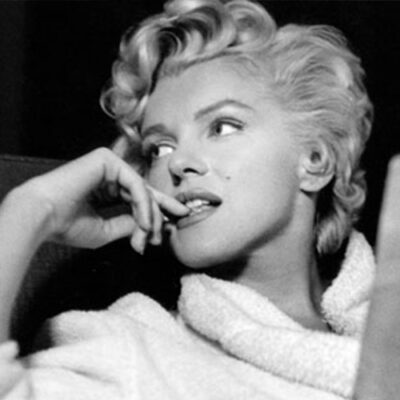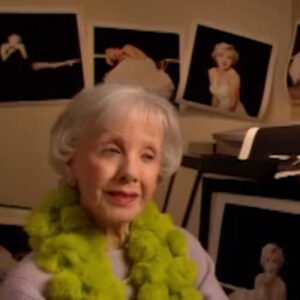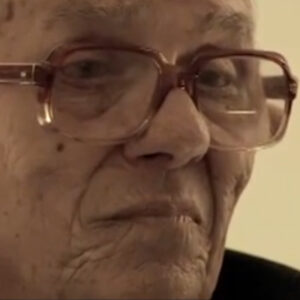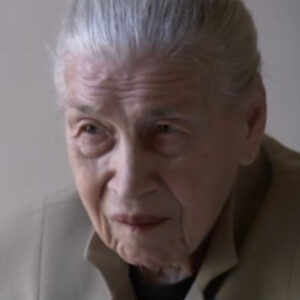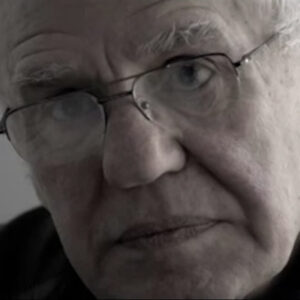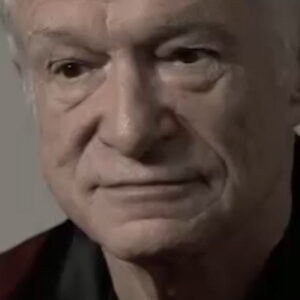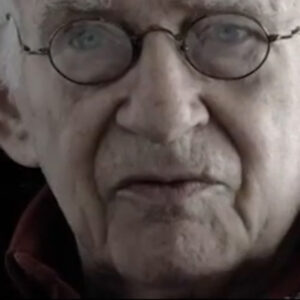Interviewer: Is subject and at the time that your book came out, it would have been Maryland’s sixtieth birthday. We now are looking at what would would be her 80th birthday. 20 years later. All around 20 years later. From your perspective, 20 years later, from the world’s perspective and as persistent as you felt she was then and he still is. Maybe more so. So I sort of like to start with that sort of entry into her for you.
Gloria Steinem: Well, the real entry was George Barris photographs because he had these on published photographs. And my publisher suggested I write the text, but that hit an interest that was already present because I had written an essay about her called The Women with the Woman who Died Too Soon for Ms magazine and got a huge, huge response that told me that, if anything, she was even more sorry. You know, the the essay for Ms magazine, which was a cover story. I got a response that told me she was even more of a figure of importance and resonance at that time after her death than she had been. Even immediately after her death, because women were beginning to admit that they saw herself, they put themselves in her. Up to that time, really, she had been a creation of male movie goers, mostly male photographers, male filmmakers. And she herself had always kind of said, you know, I feel like I’m a creation of men and women don’t like me. But once the women’s movement came along, perhaps the women were more able to admit that they felt related to her vulnerability, related to her being a sex object related to her sexual abuse when she was a child. So though the photographs were the impetus, it fell on very fertile ground of interest.
Interviewer: Did it surprise you that the response to that article at that time was as sort of as ebullient as it was, as big as it was, or did you?
Gloria Steinem: Well, the response to the article both surprised me and didn’t surprise me. It surprised me because of the length of time since her death and because we had debated whether we should do it as a cover story at all. On the other hand, it didn’t surprise me because I also was fascinated with her and just able to admit it, because during the time when she was making most movies, I felt embarrassed by her.
Interviewer: Talk about why the embarrassment and sort of. Yeah, that squeamishness that I can kind of elicit from from you.
Gloria Steinem: Well, I, I, I remember I, I never walk out of any movie, no matter how bad two consecutive sentences. And I’m saying. And then what happened? You know, I get hooked on the story yet I walked out of Gentlemen Prefer Blondes because I was embarrassed by her because she was a joke. She was vulnerable. She was so eager for approval. She was all the things that I feared most. Being as a teenage girl. And ultimately, I. I walked out. But it wasn’t until the women’s wear my came along much later in my life that I realized that we had to look at the why of those feelings. It wasn’t that we made them up. It was because we lived in a society that made women feel vulnerable.
Interviewer: Well, I also liked your comment before about yourself feeling being a female impersonator yourself. And and she is almost too pulpy to write, too. She is. She’s too much. She’s not really even seen her in photographs with someone like Lauren Bacall, for example. Interesting little parallel with sort of Betty Joan Persky and Norma Jean Baker, both of whom Crede become Lauren Bacall and Marilyn Monroe. Either side of that coin, one being the very classy, chic, sexy image, sexy icon, the other being this. Exactly. That is just too much. And you do feel she’s just completely she’s in drag herself.
Gloria Steinem: But it’s interesting that men who are female impersonators don’t try to do Lauren Bacall. She was too close to her own human self. But because Marilyn Monroe was so rewarded for creating an artificial self, it’s easier to recreate her. And so they do do her. And I know when I look at men who are female impersonators, part of the reason that I feel uncomfortable is because I also was trained to be a female impersonator. I find it, but I don’t completely succeed because I’m a 50s person. And, you know, you’re formed by your childhood and it’s embarrassing. You know, it’s it’s a verbal version of being a visual female impersonator or all those times we’ve giggled and laughed and said the equivalent of how clever of you to know what time it is, you know, to just submerged our own intelligence, become an artificial creation. And that’s what Marilyn meant or was so rewarded for doing that she could be her own intimate personal self, who had been an athlete who loved to surf, who loved animals, who, you know, are much more natural person.
Interviewer: And certainly, yes, the whole levy, I think, was nurturing and wanting children and wanting all the things that she. I mean, you used that incredible in the book, speaking of her with women, the one where she said, I’ve been married three times. I can’t have children who would ever love me. So there’s that funny. I don’t even know how to call it. I don’t even know what it is that what women are expected to be reaction. Also what she wanted to be and felt she could now not be reaction. And I feel like even that thing is this aspect of her. She was kind of both just when you’re say how clever of you know how it is. At the same time, she was also battling it herself. This desire to better herself constantly, the desire to not be considered joke, the desire to be taken seriously. So it was constantly I think.
Gloria Steinem: There was there was the only difference between this state and which many women live of being different persona and multiple personality disorder is that we are co conscious. We know what we’re doing in each state, but it is almost as artificial to put on what society wants us to be and play roles of being a sex object, the perfect mother, the perfect whatever. And the very big downside here is we may lose track of who we really are as unique human beings inside.
Interviewer: Which I think happened with her in many ways. I mean, one of the things I’m thinking about, even in terms of the photographic image with her right now, is what happened at the end of misfits, which is a very you may know this. She said she’s in this role in this phase one, I think to be, I think, also sort of battling the dichotomy of who I want to be considered a good actress now, or do I still want people to remember me as sexy babe? Don’t don’t forget that. And at the very end of that huge she went with Eve Arnold, the one really consistent female photographer of that decade, the only other female that I know of that chat with her. It always ended more than just on that set in an. Nothing more than an hour. But she went at the end of that, being on the bottom, being this whatever character to the studio in L.A. and set up with Eve, essentially a cheesecake shoot in which they closed off this little area of the studio and she sort of reverted back to this theme. And she may have. Wanted to.
Gloria Steinem: But you know if the artificiality, the role, the stereotype, the sex goddess is what you are mostly rewarded for. It’s extremely difficult to let it go. You have very little assurance that you’re going to be loved and salaried as your real self, as your unique underneath self. There isn’t even now much evidence of of of female human beings being rewarded for that, though. There is lots more, but there was much less in there in the 50s that formed. Marilyn.
Interviewer: Do you think she did? I mean, do you think she’s rather canny about all of that, too? I think she was.

